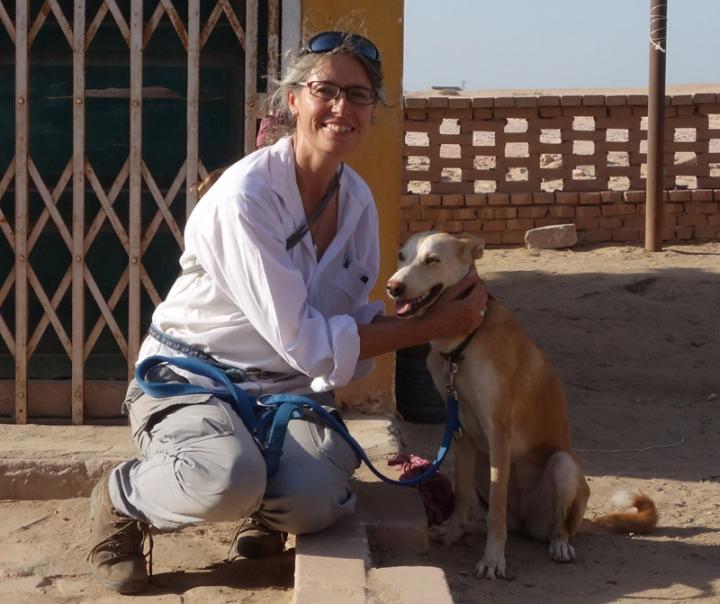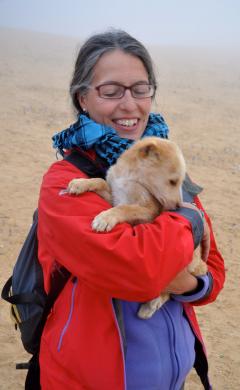An interview with Dr Joanne Rowland
Jo is a new member of staff in Archaeology, who joined us in August 2016 and is offering a new course on our online MSc in History. We find out more about her.

What did you do before coming to work with us?
I graduated from UCL with a PhD in archaeology in 2004 where I wrote my PhD on rising social complexity in pre-state and early state Egypt from the viewpoint of the Nile Delta. This was also to be the start of a long working relationship in the Nile Delta working with various projects across the region from prehistoric to Late Antique sites, and currently I run two projects, the Minufiyeh Archaeological Survey and the Imbaba Governorate Prehistoric Survey, both within the Egypt Exploration Society’s Delta Survey. I have taught various on various themes, mainly contextualised through the context of Egypt but also within North Africa and am especially interested in chronological issues, applications of scientific methods in archaeology, and pre- and early historic societies. I was Egyptological Research Fellow at the Research Lab for Archaeology and the History of Art (2006-9) on a project focussed on synchronising the Egyptian chronology with absolute scientific dating, after which I moved to the Royal Museums of Art and History, Brussels, as a scientific collaborator and co-director of a new project at the southern Egyptian multi-period site of Elkab. In 2010 I took up a position as a Junior Professor in Egyptian Archaeology at the Freie Universität Berlin, where I also started a project ‘The Neolithic of the Nile Delta’ within the TOPOI Excellence Cluster, in tandem with my fieldwork at the earliest village with evidence for domesticated subsistence in North Africa, Merimde Beni Salama. I began in Edinburgh in August 2016.
What attracted you to working at the University of Edinburgh?
The opportunity to move into a vibrant Archaeology Department within the School of History, Classics and Archaeology where so many colleagues are working in areas of overlapping interest, both in terms of chronology and wider region, but also field methods. I also really relished the chance to contribute something new, by building up fresh courses in Egyptian archaeology and strengthen links with other Egyptologists within Scotland, as well as experiencing the wealth of research throughout the university.
You have offered a course on our online MSc in History, what excites you most about working on an online programme?
The diversity of the student body. I have taught in continuing education since 1999, but always in a classroom environment, and the online programme presents an entirely new challenge and I am greatly looking forward to putting together a new course this year that is accessible to students taking the online History MSc and has the potential to reach a really varied group with interesting online seminars too. It is going to be a rewarding process to organise all of the course material, and to make it really varied, and have everything ready before the whole course begins.
What, if anything is the best thing about your job?
The variety. It has so many different aspects. I get to work with students of all ages and backgrounds, not only on campus, but also for field training. I have research projects with great colleagues in Egypt, including training programmes that really make a difference to archaeology in Egypt, and particularly to how people view prehistoric archaeology, and how they manage the whole archaeological site and work together with the local community as well. I also have the chance to travel and take new research to international conferences and meet new colleagues and also develop great working relationships with old colleagues.

If there was one nugget of wisdom that you could share with our new students about starting University what would it be?
Think carefully and seriously about what you really want to do, and then when you know – go for it. Don’t be afraid to take a little time out to get things in perspective.
If you were stuck on a desert island what is the one thing you would take with you?
If I’m allowed, I’d take my Egyptian baladi dog. She is immensely entertaining, great company, a good source of exercise, and she would fend off any scary creatures!
Taylor Smith or Kanye West?
I can’t help you there! Can I have another choice?

